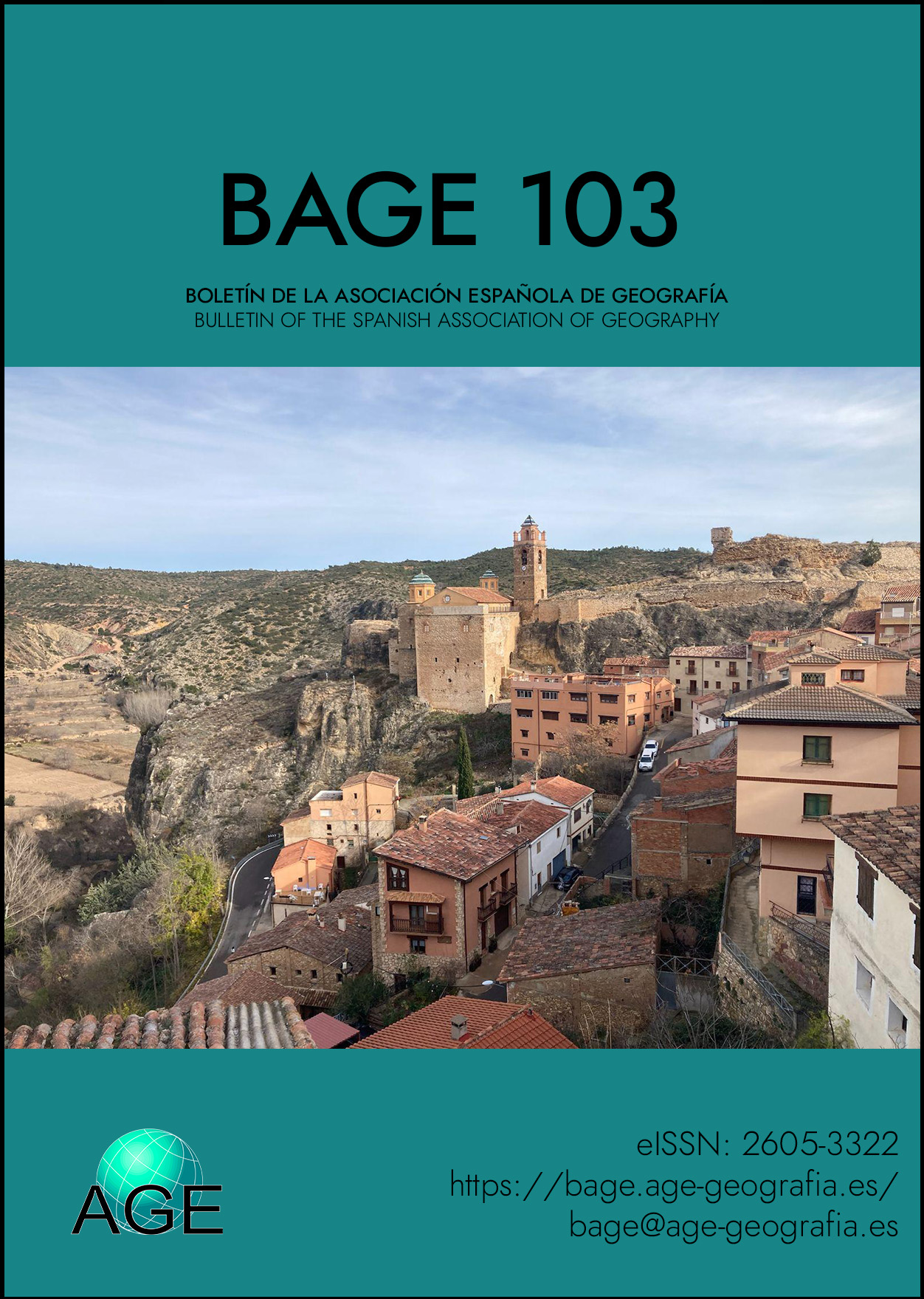Proposals to tackle depopulation from the local, and the relevance of the neo-endogenous development mechanisms: the case of Andalusia (Spain)
Main Article Content
Abstract
It is crucial to consider the knowledge and experiences of rural communities when addressing depopulation. To do this, we need to identify both successful and unsuccessful practices and learn from them. We should also understand the significance of certain public actions and build on proposals put forward by the affected communities. We conducted 120 interviews with key local figures, including teachers, politicians, business owners, young people, women, and the elderly, across twenty rural municipalities in Andalusia. These interviews sought to answer questions about the relevance of specific actions, unsuccessful initiatives, actions that help alleviate depopulation, and proposals from the local level. From the information gathered, it is clear that the primary effort to combat depopulation should start at the local level and be driven by the local community. Based on the interview responses, it is evident that strategies related to neo-endogenous development should be prioritized. This includes strengthening local governance, utilizing local resources and expertise, enhancing skills and training, improving and promoting social capital and innovation, in addition to other interventions that involve public initiatives with a focus on mitigating depopulation.
Article Details
Issue
Section

This work is licensed under a Creative Commons Attribution-NonCommercial 4.0 International License.





